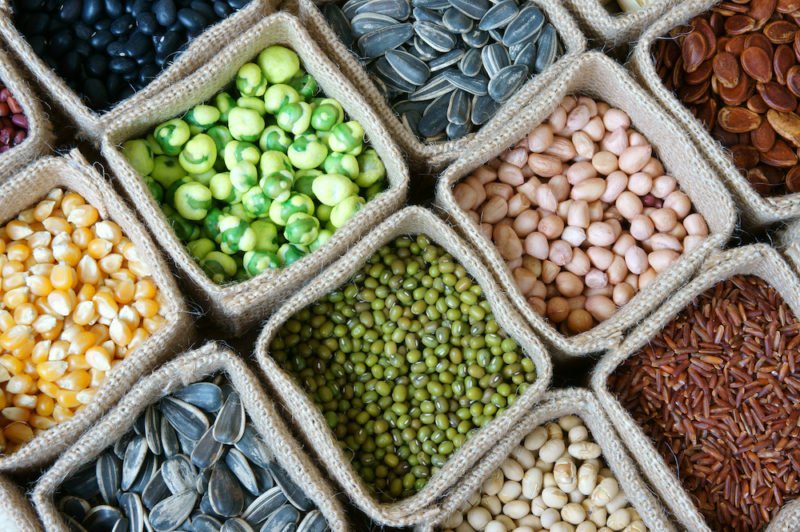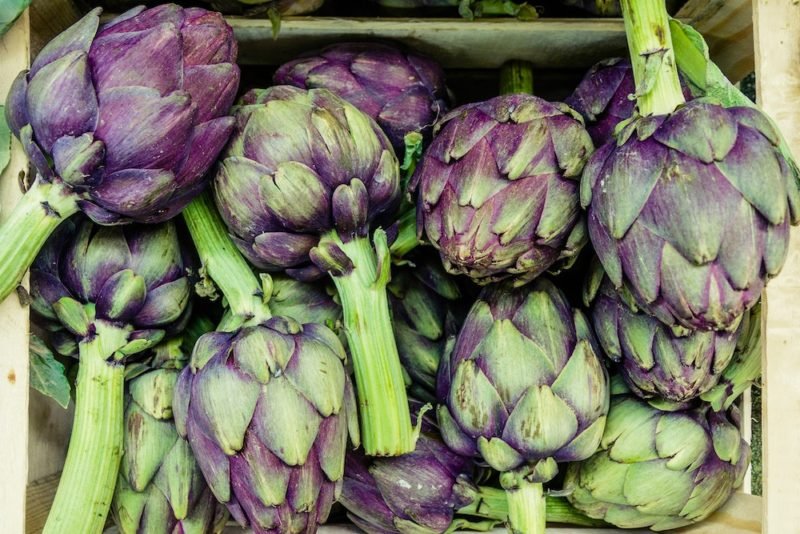
Fiber. We need it, but most of us are not getting enough of it. According to the USDA Dietary Guidelines for Americans, adult women need about 25 grams before age 50, and a little over 22 grams after, while adult men need almost 31 grams before age 50, 28 grams after. That’s a far cry from the 15 grams on average that U.S. adults are getting. If you fall in with that average, here’s what you’re missing:
Types of fiber and their benefits
Soluble fiber can help lower your LDL or “bad” cholesterol levels. Soluble fiber also slows down how fast you digest carbohydrates, which can help prevent rapid rises in blood glucose (blood sugar) after a meal. You can get soluble fiber from a variety of foods, including, beans and peas, fruit, oats, nuts and seeds, and vegetables.
Insoluble fiber helps “bulk up” your stool and speeds up the movement of food and waste through the digestive system, which can help prevent constipation. You can find insoluble fiber in a variety of foods, including fruit, nuts and seeds, vegetables, wheat bran and whole grains (both intact whole grains and foods made from whole grain flour).
Prebiotic fiber is good food for the beneficial bacteria in your gut, aka your large intestine or colon. Giving your good gut bugs the food they need to thrive means you’ll have more of them, and fewer of the types of bacteria that work against your health instead of for your health. You can find prebiotic fiber in a wide range of foods, including:
- Beans and lentils
- Soy foods
- Wheat, rye, barley and oats
- Vegetables, especially garlic, onions, leeks, asparagus, artichokes, jicama
- Many fruits, especially bananas, apples, pears, watermelon and grapefruit
- Nuts and seeds

The problem with prebiotic fiber
If prebiotic fiber is good for gut health, how can it be a problem? Well, unfortunately, almost all prebiotic-rich foods can cause uncomfortable digestive symptoms for people who have irritable bowel syndrome (IBS). IBS doesn’t hurt you in the way that some intestinal diseases can, but it can produce symptoms—diarrhea (sometimes urgent), constipation, gas, bloating (sometime to a painful degree)—that can significantly interfere with quality of life.
I’ve guided many clients with IBS through the FODMAP elimination diet to help determine exactly which foods—or what amounts of those foods—make their symptoms worse. FODMAP stands for Fermentable Oligo- Di- and Mono-saccharides and Polyols. These include lactose in dairy products (a disaccharide), fructose (a monosaccharide), and many sugar alcohols like sorbitol and xylitol (polyols). Alas, the oligosaccharides, a type of complex carbohydrate, are found in beans, vegetables and the whole grains I mentioned above.
What this means is that it can be very hard for people with IBS to get enough prebiotic fiber, which is one reason why it’s important to not just eliminate all foods that are high in FODMAPs, but to figure out which ones are causing the problem. Some people find they have to avoid or limit a short list of foods, but for others the list is quite long. And then there are those who feel so much better on the FODMAP elimination diet that they are afraid to do the important “challenge” phase, which is crucial for ferreting out which foods are the true problems. The result? A long-term diet that is very low in FODMAPs…and prebiotic fiber.

FODMAPs a no-go? There’s an alternative!
People who stick to a low-FODMAP diet for a long time (whether by choice or sheer necessity) run the risk of being perpetually low in fiber. When clients with IBS have asked me about appropriate fiber supplements, I’ve generally come up empty, because most fiber supplements—which typically contain, wheat dextrin, psyllium or inulin—are high in FODMAPs. That’s why I was excited when a few weeks ago I learned that a fiber supplement that I have casually recommended for a few years—Regular Girl—is certified to be low-FODMAP (as well as being USDA Organic Certified, Kosher, vegan, 100% gluten free, and Non-GMO Project Verified).
Regular Girl contains a blend of Sunfiber® prebiotic fiber as well as the probiotic Bifidobacterium lactis, making the product a synbiotic. Sunfiber is a soluble dietary fiber from the guar bean. Regular Girl had been shown to help people with IBS, but it’s also a helpful product for anyone (even guys!) who has trouble getting enough fiber. Regular Girl:
- Does not lead to excess gas or bloating (unlike some fiber supplements)
- Helps with both diarrhea and constipation
- Improves your absorption of minerals, including calcium, iron and zinc (again, unlike some fiber supplements)
- Is flavorless and non-gritty
- Contains no preservatives or additives…just the Sunfiber and the B. lactis!
As a healthcare affiliate for Regular Girl, I’m happy to offer you a 10% discount on your first order when you link here and use the code NUTRITIONBYCARRIE10. Have a “regular” day!






